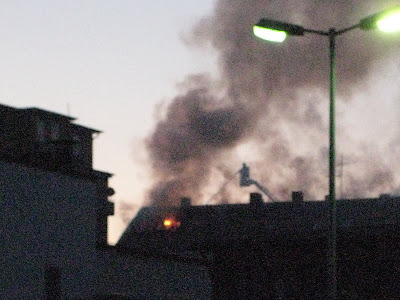There are the homes we choose and the homes that choose us. There are state parks and prisons, all-inclusive beach resorts in St. Croix and train depots in Philadelphia, sanctuaries and circuses. Sometimes our crying in public goes unnoticed and sometimes we’re greeted affectionately buying lettuce on Saturday morning.
I just went to NY for the first time in two years, and one of the only things I’ve been able to think about since returning to Germany is going back. The city had this seismic pull on me that came totally unexpected. I had expected to enjoy seeing friends. I had expected to be stimulated. I had expected to want to talk all night to the bartender just because he said so casually
whatchu having, baby. I did not expect it to heal me.
But it’s not New York I want to write about. You’ve already read that, or lived it, or at least heard about it. City of rough edges, effort and clang, money, speed, vertical lines. City of stacked objects: panes of glass, soap streaks on windows, feathered earrings, toasted almonds, a homeless man’s blankets. I don’t know anyone who lives in New York who doesn’t lean back against the door after getting home at the end of the day, holding it closed just a second longer to keep the city out.
I want to write about the places we go to recover, what we’re looking for in those places, and where we find them. But first I want to tell you about the elephants.
***
Shortly before I left New York, a long article was published in the NY Times Magazine by Charles Siebert about elephant societies in Africa. You can find it on the web. This article made a huge impression on me at the time. Among many aspects of elephant society and its recent deterioration described in relation to neuroscience, psychology and African tribal history, was a section about how elephants deal with trauma.
Elephants are profoundly social creatures. I don’t use that adjective perjoratively. They share numerous astounding parallels to our human societies, like the way they grieve for their dead years after burial, and how they communicate with each other not only through noises but via subsonic vibrations sent to each other from their feet through the earth. They also are like us in the way they deal with stress and trauma. From Siebert’s article:
Today’s elephant populations are suffering from a form of chronic stress, a kind of species-wide trauma. Decades of poaching and culling and habitat loss…have so disrupted the intricate web of familial and societal relations by which young elephants have traditionally been raised in the wild, and by which established elephant herds are governed, that what we are now witnessing is nothing less than a precipitous collapse of elephant culture...Wild-caught elephants often witness as young calves the slaughter of their parents, just about the only way, shy of a far more costly tranquilization procedure, to wrest a calf from elephant parents, especially the mothers. The young captives are then dispatched to a foreign environment to work either as performers or laborers, all the while being kept in relative confinement and isolation, a kind of living death for an animal as socially developed and dependent as we now know elephants to be.The elephants are suffering from what we would call Post Traumatic Stress Syndrome. Perhaps unsurprisingly, the methods of rehabilitation that work on humans also work on the elephants. Siebert cites Misty as an example, a circus animal who lashed out at trainers and was consequentially considered dangerous and banished. She is now at the Elephant Sanctuary in Tennessee, fully recovered. Their method is called the “passive control” system, because it is non-dominant. Unlike in circuses and with many trainers, there is no discipline, punishment or withholding of food, water and treats. Instead, every measure is taken to give the animals what they need to recover: a sense of safety, the freedom of choice, and continuous social interaction.
***
The first time I went to New York I was 20 and I went alone. I got into a taxi for the first time and gave him an address in the West Village, terrified. I let myself into a four-story brownstone on a quiet side street with keys that had been mailed to my parents by their friends, who’d inherited the place. I was in the city to dance, but what I remember most about that summer was walking around with my notebook, sweating constantly, and trying to find a different route from the West to the East Village every day for class. I didn't know anybody, I didn't meet anybody, and I don’t remember what exactly I learned about dancing, but there are streets I walked down three weeks ago - parts of Macdougal and Greene and 14th between 8th and 7th - that still remind me of that first trip over 10 years ago.
New York was the only place where what was happening around me seemed to fit what was happening inside me: the need to be at the absolute center of things while disappearing completely at the same time. I was absolutely invisible. I was the key witness.
***
The last apartment Fred and I lived in before leaving was in Park Slope, across from an old Armory. Lying in bed, I could angle myself so that all that was visible out the window were the sky, the branches of the trees, and the brick turret of the Armory, which looked like it belonged on a castle. This view was important to me, because from that angle I could not see another window looking back at me, and I could squeeze out the city. I was tired.
I am a very light sleeper, and every few weeks I’d be woken up by shouts, fights and the blinking of police lights from across the street in the middle of the night. The Armory housed a shelter for women who had been victims of domestic violence, and especially during the hot months of the summer, fights would break out and the police would come. Women screaming at women. Women screaming at men. Children protesting, resisting, being called out to. I couldn’t catch the gist, but the tone told everything:
Don’t fuck with me. Get your hands off of me. Go to hell. Living across from the shelter didn’t bother me. What did bother me was entering my own building and walking up the four flights getting closer and closer to the sound of our neighbor screaming at his wife. She worked full time and he stayed at home with their young son. Maybe he freelanced, maybe he was out of work – at any rate she had the “good” job in advertising for a pharmeceutical company. Once I was inside their apartment for a meeting. I was offered a drink. I noticed their fruit-of-the-month subscription: a carton of pears on the kitchen counter, an invoice. The pit in my stomach, looking at him.
It was suggested to me that I call Child Protective Services. They would surely come if they know a child was in the house. I called:
"I hear screaming, and I know there’s a baby in there"
"Have you heard anything breaking? "
"No."
"Have you heard the child crying?"
"No."
"Have you heard any sounds of impact, someone or something being hit or thrown?"
"No."
"Then I’m sorry, Miss, but there’s really nothing we can do. Unless we have some evidence that the child is being hurt there is nothing we can do."
***
Where is the place where we get what we need and how much? Space, health insurance, green grass to lie on. Love, a warm meal, time to oneself, quiet on the streets from 10 to 10, a glass of clean water, a pen and a piece of paper to write it all down. Safety, freedom of choice, continual social interaction. Do we have to leave home to find it?
I left New York with these questions on my mind. Both times: two years ago when I left for the green rolling hills, state-subsidized theaters and clean streets of Germany, and three weeks ago, hesitating. "New York is where we come for forgiveness" I'd overheard, scribbled down a few months before leaving the first time. Maybe I was always coming for the same reason: for absolution in the crowd. To scan the faces for traces of the guilt, regret, loss, betrayal, confusion I myself felt. City, wash over me.
The place we need changes according to what we suffered, and where. The sanctuary can be the old house or the new one, the porch swing or the hotel do not disturb sign. An Armory protects its weapons. A town sits in the valley, safe from intruders. The freedom of so many choices blurs and electrifies the city.











































